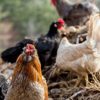Dear Hazon Seal Sites, Earth Day is this coming MONDAY, April 22! Here is another themed listserv email to get you all excited! As we come together around the Seder table this Passover, we invite you to take this opportunity to explore your relationship to food. If this is not new to you, we invite you to dive a little deeper. During this time of year we celebrate our freedom and remember times of inhumane treatment and abuse. We are elevated by appreciation for our liberty to choose and, if we are fortunate, the abundance of modern times. This year Shabbat coincides with Passover, making this Shabbat exceptionally holy. Let us take a look at our Seder table and ask ourselves: Does this table represent me and my values? In this modern industrial world, it is hard to shop and eat without perpetuating suffering in some form or fashion. But we can try. Let’s ask ourselves: How can I better celebrate without perpetuating harm or suffering? We have the freedom to choose, but do we choose wisely, kindly? Our tradition compels us to care for our environment and to take animal suffering seriously. In our food choices we have […]
Topic: Food

Recipe: Moroccan Charoset Balls for Passover
Want a bigger taste? Join us this summer at the Hazon Food Conference! Moroccan Charoset Balls By Susan Barocas A typical Moroccan charoset recipe contains dates, raisins, local spices and various fruits finely ground together for unique blends. There is a tradition of rolling up haroset into balls that are delicious eaten alone or squished between two pieces of matzah at the seder, for a Passover breakfast or an anytime snack. Prep time: 15 min Cook time: none Yield: about 24 balls Ingredients 2 cups pitted dates (about 24 medium-sized) 6-7 dried figs, Black Mission or Smyrna 1 cup raisins, preferably golden 10-12 dried apricot halves 1 cup roughly chopped walnuts ½ teaspoon ground cinnamon or to taste Couple pinches allspice (optional) 1 to 2 tablespoons sweet red wine or grape juice ½-¾ cup almonds, finely ground (optional) Directions Using a food processor with the metal blade, pulse and grind the dates, figs, raisins, and apricots until coarsely chopped, scraping down the sides as needed. Add the walnuts, cinnamon, and allspice, if using, and pulse until mixture is finely chopped and blended together. Keep scraping down the sides as needed. It often will start to form a ball. Add just […]

Recipe: Creamy Asparagus Soup for Passover
Want a bigger taste? Join us this summer at the Hazon Food Conference! Creamy Asparagus Soup for Passover By Liz Rueven, Kosher Like Me This one pot vegan soup highlights the earliest spring crop during our joyous celebration of a new season. Feel free to make it in advance and store in the refrigerator for 2-3 days before serving. Serves 6-8. Ingredients 2 bunches asparagus, chopped (woody ends snapped and discarded) 1 small head cauliflower, rinsed and separated into florets 4 Tbsp olive oil 1 large red onion, peeled and chopped 4 cloves garlic, peeled and chopped 6 cups vegetable broth 4 Tbsp fresh dill, chopped (reserve some for garnish) 1 tsp fresh thyme 2 Tbsp fresh parsley, chopped salt and pepper to taste 1 Tbsp lemon juice (or more to taste) ¼ cup chopped pistachios (optional) Directions In a large soup pot, heat olive oil until shimmering. Saute onions until soft. Add garlic and toss for 2-3 minutes. Add asparagus and cauliflower to same pot. Stir and cook, covered, for 10 minutes. Add vegetable broth, bring to a boil and immediately reduce to a simmer. Cook for 20 minutes or until cauliflower is tender. Remove from heat and stir […]

Hazon Detroit: Ethical Meat Buying Club: Deadline to Order 4/7
Dear friends, At the core of Judaism is the sacred task of aligning our daily actions with our deepest values. And what daily action is more Jewish than eating?! So then what does it do to the joy of our Shabbat dinner or the holiness of our Passover seder, if we sit down to eat chicken that has been raised in a factory farm, or brisket from a cow that never saw the sun? It is hard to live in a world where the most common and readily available meat we can find almost always comes from sources that none of us would objectively support. It makes honoring ourselves, our families, the earth, all living beings, and the Jewish tradition eminently challenging. Luckily, we can take a step in right direction! Join aspirational eaters from across the metro-Detroit Jewish community in the launch of the Kol Foods Hillel Day School meat buying club, offering greater access to higher-welfare kosher meat that is 100% grass-fed, humanely raised on farms using regenerative farming practices, and ethically produced. As you may know, Hillel Day School switched over to this meat for its lunch program earlier this year. Now, the same items are available […]

Hazon Seal NYC Cohort: Launch and Composting Initiative
The Hazon Seal NYC Cohort met for the first time! We got acquainted and launched our annual initiative for composting. Mara Moss from the NYC Department of Sanitation presented and explained local resources, answered questions and provided much-needed clarity regarding the various local programs. Listen to a recording of the meeting and watch the presentation slides here Click here to download the DSNY presentation slides. Learn more about our NYC Composting Initiative, and about how you can promote composting in your community / organization: here. Please reach out to us if you have any questions: seal@hazon.org.

Hazon Seal of Sustainability Highlights our Relationship to Food in 2019
Our Hazon Seal of Sustainability network is large and strong. Together, we can aggregate our efforts and demonstrate how we, as a community of Jewish communities, have made and continue to make a measurable difference in safeguarding this earth (being “Shomrei Adamah”)! We applaud each of our Hazon Seal institutions for the unique and impactful programs and policies implemented in 2018. As we begin to consider and to work on projects for 2019, we at the Hazon Seal wanted to announce that we are dedicating 2019 to the area of FOOD POLICY. Whether addressing food waste, hunger in the community, composting and/or animal welfare – we encourage you to consider food policy to be one of your projects for 2019. This means that if you choose to join us in these efforts, we may have funding available for some of your programs! We are happy to announce NEW MINI-GRANTS to help Hazon Seal sites create and implement a FOOD POLICY that also promotes ethical food sourcing and animal welfare in their organization. Get all the details here. Grants are limited and first-come, first-serve, so check it out today! Consider the following… Know a bar or bat mitzvah student who loves […]

Ethical Eating Mini-Grants
Announcing: New mini-grants to help Hazon’s Seal of Sustainability Sites promote ethical food sourcing and animal welfare* Thank you for your interest in putting your values into action by exploring food choices that promote ethical food sourcing and animal welfare. YES – our food choices matter animal welfare is important this *is* a Jewish issue and we – right now – at a tipping point toward compassion Click here to learn more. With the generous support of EJF Philanthropies, Hazon is pleased to provide this wonderful mini-grant opportunity. To obtain the mini-grant – (a) Commit to one or more of the following: Reduce consumption of animal products Transition to higher welfare animal products (b) Articulate how this will be a part of a long-term change in your institution’s food sourcing and policy Grants of up to $1000 and will be granted on a matching basis, in $ or in-kind contributions. ‘In-kind’ can be, for example, hours of work, space, and other services that your community is contributing to the project. Examples of projects that you can do with this grant: Plan an all plant-based kiddush once a month with a commitment to continue this moving forward. Organize a screening […]
Strategy Update
Thursday, February 7th, 2019 | 2nd Adar I, 5779 We’re in the middle of our strategic planning process. I want to give you a sense of where we are and perhaps where we’re heading. First of all: a huge thank you to the significant number of people who have participated in this process. Nine people – five lay, four staff – are on the Advisory Committee that is leading this process, ably chaired by Jessica Haller. We’re working with Wellspring consultants, and the key staffers there now feel like old friends. 298 people filled out an online survey (thank you!). 31 people did one-on-one interviews with our consultants. There have been three significant focus groups, and two weeks ago a six-hour meeting with 28 of our staff and the Wellspring folk. I believed before we began that this was going to be necessary and important. Now, though we haven’t yet landed, we have a much clearer sense of this – including one hugely significant consequence we hadn’t previously focused on. We’re not changing our mission and vision. We’re about “healthier and more sustainable.” We strengthen Jewish life – and help create a more sustainable world for all. We’re the Jewish […]
Blessing Family & The Earth | D’varim HaMakom: The JOFEE Fellows Blog
by Jared Kaminsky, Shoresh Parshat Vayechi In only 3 short months, I’ll be turning 30 years old! I was recently married, and purchased a home, and feel that I have made a massive leap into adulthood. I will one day, G-d willing, start a family and have children of my own. It will be my responsibility to pass on teachings to my children (and grandchildren) that reflect my values. This is a HUGE responsibility! They will see me as a guide and role model for how to act in the world. What will I share with them? What type of father, grandfather, neighbour, and citizen will I be in their eyes? In this week’s parsha, Vayechi, Jacob is nearing the end of his life and he decides to pass on his final wishes and blessings to his own family. He asks his son Joseph to bury him in Israel. He also blesses Joseph’s sons Ephraim and Manasseh elevating them to be considered his own sons and heads of tribes one day within Israel. In addition, Jacob provides individual blessings to the rest of his sons, each of whom will be leaders among their tribes. My grandfather is one of the […]
Listen Ya’ll! | D’varim HaMakom: The JOFEE Fellows Blog
by Alex Voynow, Jewish Farm School Parshat Haazinu [NOTE: Applications for the next JOFEE Fellowship cohort are open now through October 5! Apply today!] In Ha’azinu, Moses sees the Israelites for who they are: humans, scarred by 40 years of impatient wandering and in no mood to listen obediently. Moses is 120 years old and holds so much wisdom; this is the last day before his death, and he has some things to say. He has the story of his life to tell, which in his epic personal union with the Israelite people is also the story of God. He needs them to understand, like the tender, concerned patriarch that he is, how to live in God’s favor so they can blossom into the promised land and not mess up this covenant (fast-forward: oops). What he has to say is so important that he does something that really resonates with me. Moses speaks language that heaven and earth themselves will understand, and in a language that will more likely move the people: in song. He launches into a 48-verse poem doing his damnedest to sum up his life’s spiritual learnings. I’m not going to get into it because it’s densely […]
Indigenous Rights and Reconciliation | D’varim HaMakom: The JOFEE Fellows Blog
by Jared Kaminsky, Shoresh Parshat Shoftim The parsha of the week is Shoftim, which means Judges. As Moses nears the end of his life, he wants to ensure there is a system of governance in society. Shoftim gives detailed ordinances on many topics of law, including appointing judges, laws that kings should follow, creating cities of refuge when crimes are committed, and the rules of war. For example, the parsha states that appointed judges are forbidden from taking bribes and there must be two credible witnesses for a conviction. Another ordinance demands that kings must not have too many horses and must always carry around two Torah scrolls to remind them that G-D is above them. The Torah even provides a city of refuge for those who accidentally murdered someone to live in safety! While many of these laws do not apply to modern society, there are some important insights into preventing corruption and treatment of humankind that we can still learn from. Moses recognized that every generation has the obligation to critically examine and apply the laws of the Torah. As Jews we should examine the laws that govern the places we live and work to protect the rights of […]
Reflections on Kindness | D’varim HaMakom: The JOFEE Fellows Blog
by Brenden Jackson, Amir with Shalom Community Farm Houston Parshat Eikev In Parshat Eikev, Moses calls upon his people to reflect on their past in order to remember and obtain the future that was promised to them. As they prepare to enter the Promised Land, the lines blur between past transgressions, promises, sufferings and joys, made inseparable from the current joy at the edge of the holy land. As summer comes to a close here in Houston, so does summer camp programming, which means ending my mentor role with summer farmers and transitioning to fall programming. With the end of the summer chapter, I find myself guided by Moses’s reflections while I enter the reflection stage of this particular learning cycle. Here in Houston, we have several projects occurring and converging at one time: On the one hand, we have Shalom Community Farm – a Jewishly centered agriculture program aimed at connecting flora and Torah for community members. On the other hand, we are developing a Garden Kitchen program with the Boys and Girls Clubs of Greater Houston, where I grow, harvest, and prepare produce with different community members. While in many ways these projects are totally separate, Amir has […]
Choosing our History | D’varim HaMakom: The JOFEE Fellows Blog
by Henry Schmidt, Shalom Institute Parshat Devarim The Torah may be our past, but Devarim, the shared name both for this week’s Torah portion and for the fifth book of the Torah, is our history. What is the difference between past and history? Our past is simply a chronology of events, one after another, that bring us to the present. It is what one may observe if they traveled back in time and watched things unfold. History, on the other hand, adds important layers; history is the past we choose to tell and how we tell it. The establishment of history is an inherently political process. Whoever has the most access to public discourse or public thought typically gets to shape the narrative of the people. In the case of Devarim, this power rests solely with Moses. Though he shall not see the promised land and must cede this honor to his successor, Joshua, he still possesses the most powerful role of this period for the Jewish people: he gets to tell them their own story. After all, Devarim translates to “the words,” and these are “the words” of the Jewish people. We already know that the Jews eventually receive […]
Fear and Donkeys | D’varim HaMakom: The JOFEE Fellows Blog
by Henry Schmidt, Shalom Institute Parshat Balak I thought Balak was a story about a donkey. That is to say, when I sat down to write this blog post, I expected to write about the talking donkey we’ll soon meet. Understandably, a talking donkey tends to get a lot of attention. However, this time I found the ending of the parsha (Torah portion), an ending I had always overlooked, to be what especially spoke to me. Let’s start with an overview. Balak, King of Moab, sees the growing people of Israel and how they have conquered all of Moab’s neighbors, leaving Moab directly next to the potential threat of this dynamite group of nomads who seem to be on a roll. Worried about the Israelite’s winning streak, he summons Balaam, a pagan sorcerer, to come and curse the Israelites. “‘There is a people come out of Egypt; it hides the Earth from view, and it is settled next to me. Come then, put a curse upon this people for me, since they are too numerous for me; perhaps I can thus defeat them and drive them out of the land. For I know that he whom you bless is blessed […]
Mayim Chayim and Honoring our Mother | D’varim HaMakom: The JOFEE Fellows Blog
by Alex Voynow, Jewish Farm School Parshat Chukat In Chukat, our mother dies. “Miriam died there [at Kadesh] and was buried there. The people were without water and they joined against Moses and Aaron.” ~Numbers 20.1-2 Miriam’s death gets one line, and then the narrative is quickly redirected back to the patriarchs. I was amazed at the amount of lines the Torah takes in Chukat to explicate the condemnation of Moses, the laws or ritual purification, and the military proceedings of the Israelites, while one verse is all we hear about the death of Miriam the Prophetess. Miriam provided the water. And just as in the central focus of the movement at Standing Rock, “Water is Life.” Mayim chayim. If you say mayim repeatedly, you also begin to say ima — mother. In the Torah, we lost our mother Miriam, our life source. She is barely mentioned again. So, the central question for me and for us that comes up is: whose story is this? Who wrote this book? There is an obvious reality that women were centrally important to the life and culture of the Israelites, yet they are seldom mentioned, celebrated, or mourned. I see this as the Torah’s infidelity […]



